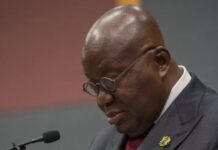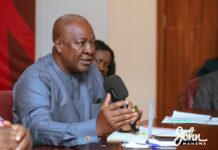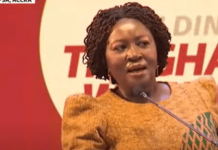
There’s a missing plank in President Nana Addo’s corruption fight. This plank is missing in both the NPP’s 2016 manifesto and the president’s anti-corruption rhetoric. It is an almost impossible task to run a clean government without addressing this issue. I’m referring to the issue of campaign finance and the broader issue of political party funding.
It is no news that elected officials spend a fortune to get elected. A simple armchair analysis of the campaign activities of political candidates from constituency primaries to national elections and the expenditures that go with them confirm this.
Alban Babgin, MP for Nadowli-Kaleo said in an interview on Starr FM on Wednesday 21st June 2017 that, “To get into parliament now, depending on your constituency, you will not spend less than GH¢1m.”
On August 5th 2016, the Institute of Economic Affairs (IEA) also reported that their research into the activities of political parties showed that “it costs political parties up to GH¢100,000 to run and maintain themselves in all districts of the country just for one month during off peak election seasons; in between elections…During electioneering campaigns, it could cost as much as GH¢800,000 a month for political parties to run their activities”.
If I spend GH¢1m to get elected as MP, I will definitely find a way of covering that cost. Per the IEA’s findings, a political party will spend a total of GH¢13,200,000 to run its operations. The question is: how do political parties and their candidates finance their operations? How many politicians will spend private funds on elections without an intention to recover monies spent?
Chapter 12 of NPP’s 2016 manifesto is titled Governance, Corruption and Public Accountability and the party states that, “The NPP will fight corruption head-on through preventive, detective, corrective and punitive actions”. One of the best preventive actions against political corruption is regulating campaign finance. The president’s efforts at fighting corruption are commendable but not enough in the corruption fight if elected officials need an arm and a leg to get elected. They will definitely find a way to finance their operations and it always leads to corruption scandals.
Father of modern Singapore, Lee Kuan Yew wrote that, “Human ingenuity is infinite when translating power and discretion into personal gains”. I dare say that if the president does not initiate reform in the area of campaign finance, he’ll find himself in conflict with his party officials. Party officials and government appointees will find disingenuous ways of translating power into private gains.
Well, since I work as a ghostwriter and corporate trainer and not a politician, I thought I may not know any better. So I referred to one of my favorite books, Lee Kuan Yew’s “From Third World to First World”. So the gospel according to Lee Kuan Yew, chapter 12 (titled Keeping the Government Clean), page 164, paragraph 2 reads: “A precondition for an honest government is that candidates must not need large sums of money to get elected, or it must trigger off the cycle of corruption. The bane of most countries in Asia has been the high cost of elections. Having spent a lot to get elected, winners must recover their costs and also accumulate funds for the next election. The system is self-perpetuating”.
Soon we will be electing MMDCEs and national executives of the political parties and if the cost of elections remain high, the cycle of political corruption will continue. If there’re no reforms in campaign financing, the NPP government will be tainted with corruption scandals. Big money is the oil that makes the wheels of political parties and elected officials turn.
The time to talk about campaign finance reform is not 2019 or 2020. Every forward looking elected official is currently in cost recovery mode and is thinking of accumulating funds for the next election. Civil society must also place campaign finance reform on the front burner. Ghana needs a new paradigm in campaign finance. Once again, there’s a lot of wisdom in the gospel according to Lee Kuan Yew, chapter 12, page 165, paragraph four reads, “Singapore has avoided the use of money to win elections. As leader of the opposition, I persuaded Chief Minister Lim Yew Hock in 1959 to make voting compulsory and prohibit the practice of using cars to take voters to the polls. After winning power, we cleaned up triad (secret society) influence from politics. Our most formidable opponents, the communists, did not use money to win voters. Our own elections were small, well below the amount allowed by law. There was no need for the party to replenish its coffers after elections, and between elections there were no gifts for voters. We got them to vote for us again and again by providing jobs, building schools, hospitals, community centers, and most important of all, homes which they owned. These are substantial benefits that changed their lives and convinced them that their children’s future lay with the PAP. Opposition parties also did not need money. They defeated our candidates because the electorate wanted an opposition MP to pressure the government for more concessions”. Need I say more?




